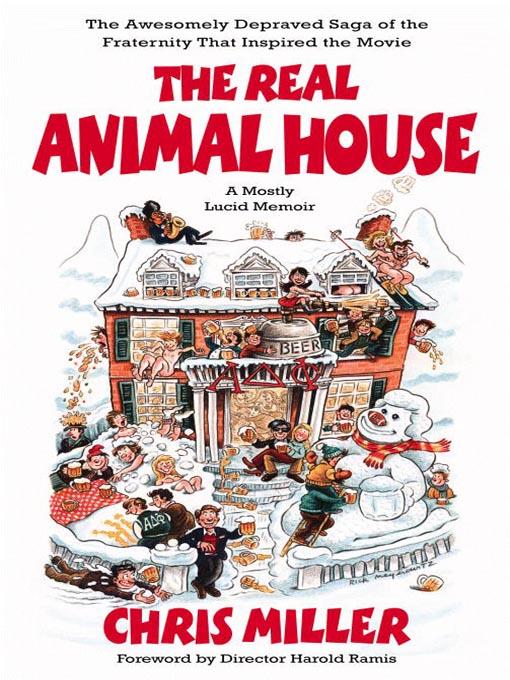
The Real Animal House
The Awesomely Depraved Saga of the Fraternity That Inspired the Movie
کتاب های مرتبط
- اطلاعات
- نقد و بررسی
- دیدگاه کاربران
نقد و بررسی

October 9, 2006
The screenplay for National Lampoon's Animal House
was the brainchild of National Lampoon
editor Harold Ramis, Doug Kenny and Miller, who turned Dartmouth frat life into the 1978 hit movie. Often, their stories were considered too sordid for Universal's producers to air. Ironically, what seemed too gross to put on screen in the '70s is now too boring to put in print. Yet without actors to give dimension to the zany characters, the tall tales feel like an awkward, horny sophomore faking bravado. What readers learn is Miller's obsession with puerile details and his insane desire to degrade himself. Pinto, the name he gave himself at Dartmouth, finds acceptance at a fraternity because of his "booting prowess" (vomiting skills); he witnesses the sexual victories of his pals, drinks himself sick and survives car accidents. Like the outtakes in DVDs, this book proves that Miller's frat-boy shenanigans deserved to stay on the cutting-room floor, not because of any sense of prudery, but to save the reader from testosterone-fueled overkill. Die-hard fans may be amused by the tales of "Bags" and "Seal," the two real-life inspirations for Animal House
's Bluto, the role John Belushi nailed. But none of the recorded pranks have the life-spirit contained in Belushi's clarion call: "Toga!"

November 1, 2006
In what is decidedly a kick in the Republican ass of our repressed and conservative zeitgeist, this paean to adolescent alcoholic reprobatesa.k.a. the early 1960s Dartmouth Alpha Delta Phi fraternityfollows the recent biography of National Lampoon grand pooh-bah and Miller cohort Doug Kenney, Josh Karp's A Futile and Stupid Gesture: How Doug Kenney and National Lampoon Changed Comedy Forever. Miller, cocreator of the beloved 1978 film classic Animal House (which forever endeared actor/comedian John Belushi to our hearts) dishes in the first person on the (s)exploits of the real Ivy League Animal House, replete with its considerable debauchery, fornicating, and sophomoric hijinks. When Miller becomes frat brother Pinto, the memoir, however, abruptly and annoyingly shifts to the third person. Still, readers will enjoy finding out who inspired whom for the celluloid version of Sixties frat life. Almost 30 years have passed since Animal House dressed our collective comedic psyche in a beer-stained toga, but the question isn't, Do we still care? It's, Does Bluto like a good food fight? Recommended for performing arts and popular culture collections.Barry X. Miller, Austin P.L., TX
Copyright 2006 Library Journal, LLC Used with permission.

October 15, 2006
Billed as a "wildly exaggerated memoir," this book by the writer whose autobiographical stories for " National Lampoon " were the basis of the movie " Animal House " is exactly what you would expect it to be: loud, raucous, infantile, racy, and very funny. It's hard to tell where Miller draws the line between reporting and making it up, but does it really matter? Like the movie, this " Animal House" isn't about real fraternity life; it's about the life that the stereotypical frat brother from the 1950s and early 1960s wishes he had lived. The book is full of likable eccentrics, sexual shenanigans, and--if you know where to look for them--valuable life lessons. Put on a CD of '50s and '60s rock 'n' roll, sit back, and let Miller transport you to a place and time that never actually existed--but wouldn't it be something if it had? (Reprinted with permission of Booklist, copyright 2006, American Library Association.)

























دیدگاه کاربران